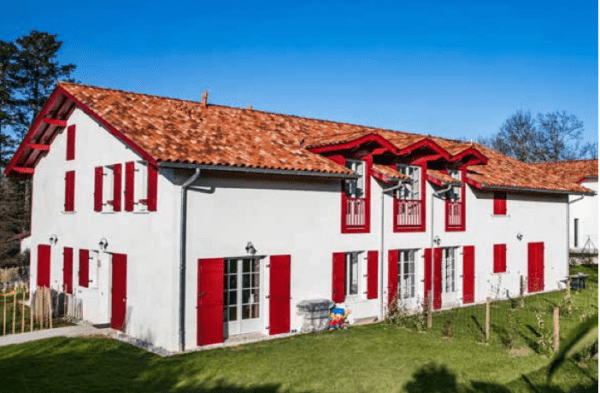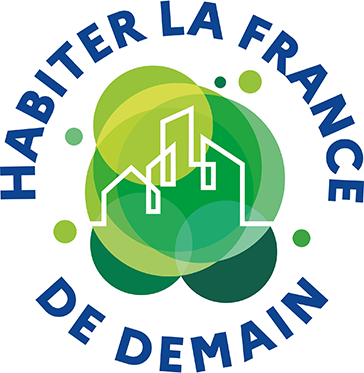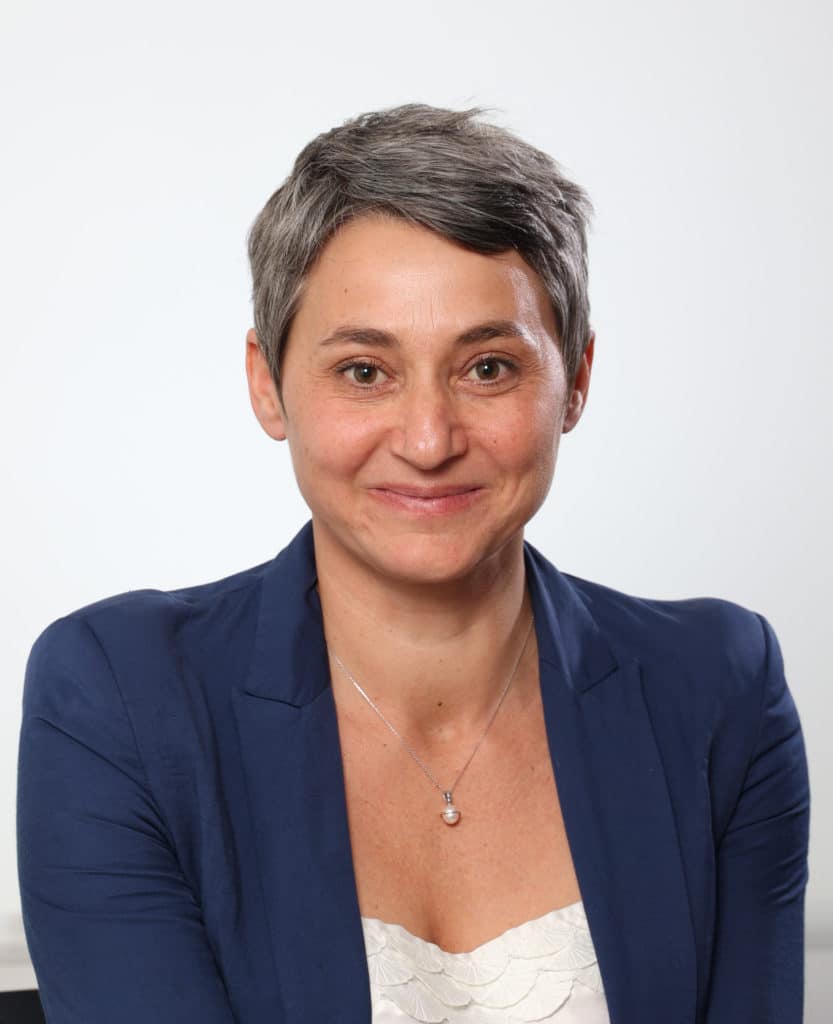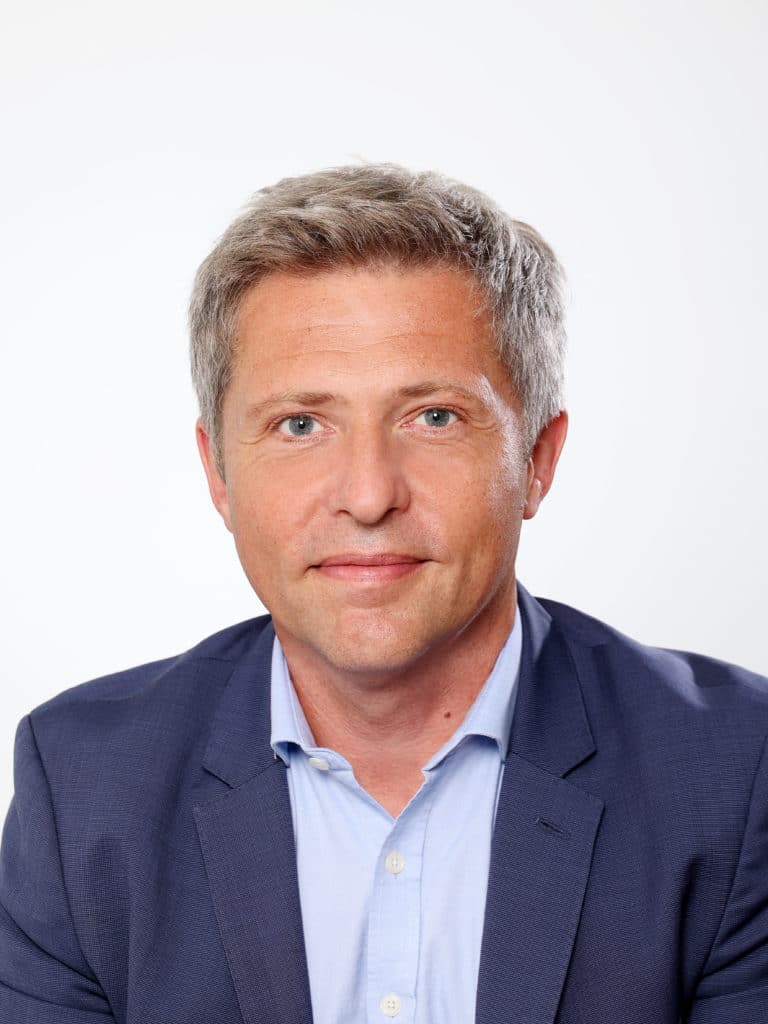Opération Kaminoa, 5 logements en BRS
Une réalisation proposée par MTE - AD5 - Ecocité - OFS

Contributeur
Sophie.robin@developpement-durable.gouv.fr
Descriptif
Initialement, un premier projet de 5 logements avait été envisagé sur une ancienne ferme suite à son acquisition en 2011. Or, le bilan déficitaire de l’opération, en raison de sa charge foncière et du coût de la réhabilitation du bâti, avait conduit à son abandon.
Suite à l’agrément de la coopérative foncière aquitaine en tant qu’OFS, dont le COL, propriétaire du site, est membre, le projet a été relancé dans le cadre du dispositif OFS/BRS en vue de neutraliser la charge foncière et de proposer 5 logement en accession sociale à la propriété, sous plafond PSLA, au cœur du village d’Espelette, permettant le maintien dans la commune de jeunes ménages.
En 2019, ce sont ainsi 5 logements T4, d’environ 85m² avec jardin qui ont été livrés. Alors, qu’à Espelette, les prix du foncier avoisinent 3 200€/m², les droits réels de ces biens ont été vendus au prix moyen de 167 000€, soit 1 992€/m² de surface habitable au sein d’une résidence à l’architecture basque soignée, entièrement réhabilitée par l’architecte Thierry Girault, auquel s’ajoute une redevance foncière de 90€/mois/ménage.
- Construction
- Rénovation / Réhabilitation
- Qualité du logement
- Économie sociale et solidaire
- Renforcement du lien social et de la solidarité
- Bâtiment
Fiche d'identité
- < 20 000 habitants
Médias
Évaluation du projet*
sur la base du déclaratif du contributeur
Critère n°1 : SOBRIÉTÉ
L’opération Kaminoa a été réalisée sur le site d’une ancienne ferme basque réhabilitée et divisée en 5 logements.
NC
NC
NC
Critère n°2 : INCLUSION
NC
Le dispositif OFS/BRS est un levier de la lutte contre la spéculation immobilière, les subventions publiques initialement versée en vue de la réalisation de l’opération étant cristallisées dans le BRS dont la revente est encadrée. Par ailleurs, les collectivités en s’appuyant sur ce modèle permettent, outre le maintien en place de ménages modestes, d’apporter des solutions nouvelles en matière de mixité sociale. En effet, réhabiliter un immeuble ou une maison de centre-bourg coûte souvent très cher. Sans aides publiques massives, les collectivités rencontrent des difficultés pour produire des logements destinés à l’accession sociale. Dans ce contexte, en dissociant le foncier du bâti, le dispositif se révèle une alternative intéressante en proposant des prix de vente qui restent accessibles à tous malgré les travaux de rénovation engagés. Pour les communes rurales, c’est un levier également intéressant pour accompagner la réhabilitation de leur centre-bourg.
Les 5 logements en accession sociale à la propriété en BRS sont destinés à des ménages ayant des revenus inférieurs au PSLA. Le prix du m² est d’environ 1 992€/m² (contre 3 200€/m² dans le libre).
Dans le cadre du dispositif OFS/BRS, le foncier est la propriété d’un OFS (La coopérative foncière aquitaine dans le cadre présent), tandis que les ménages preneurs d’un BRS acquièrent des droits réels pour une durée de 18 à 99 ans.
D’après les premiers retours de ménages, et bien qu’ils ne soient pas propriétaires du foncier pour lequel ils versent une redevance au titre de son occupation, le dispositif est plutôt bien accueilli et la notion de loyer foncier bien accepté. Sans le portage de la part foncière par l’OFS, ces ménages n’auraient pu prétendre à l’accès à la propriété à Espelette.
Critère n°3 : RÉSILIENCE
NC
NC
Critère n°4 : CRÉATIVITÉ
NC
NC
Critère n°5 : POTENTIEL DE RÉPLICABILITÉ
Le dispositif se déploie actuellement sur l’ensemble du territoire national (métropole et DOM). A ce jour, 54 OFS ont été agréés et près d’une centaine de logements en BRS livrés (Lille, Espelette, Kremlin-Bicêtre…). Cette dynamique vise à s’amplifier et, à l’horizon 2024, il est ainsi projeté, au regard des programmes identifiés auprès des OFS agréés par la DREAL, environ 20 000 logements en BRS.












